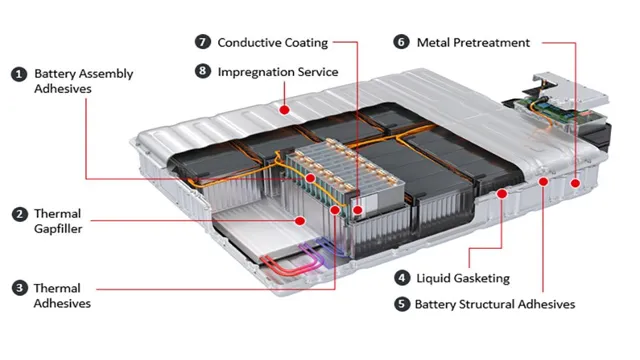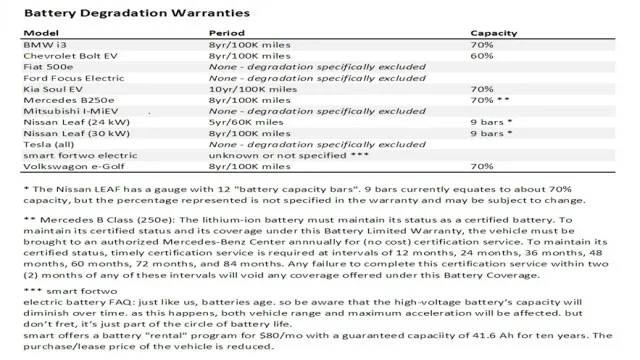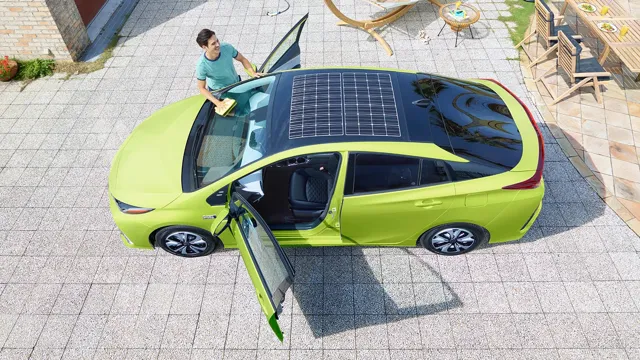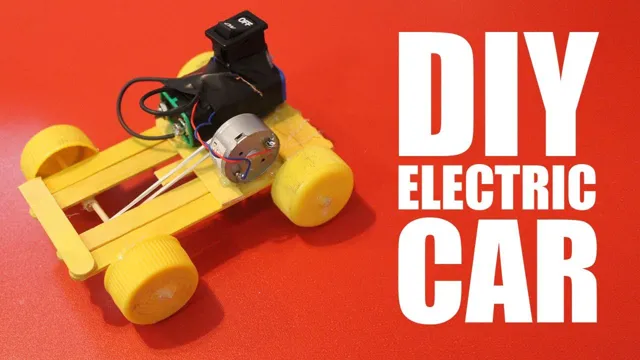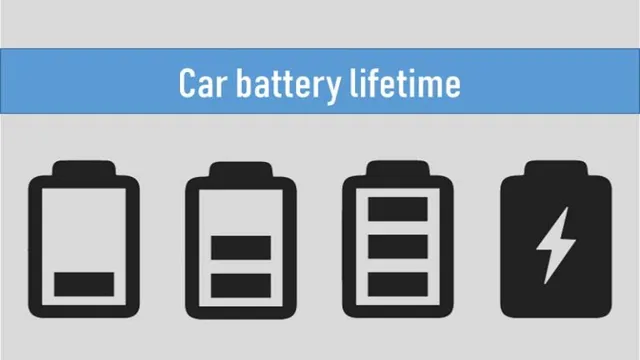Unlocking the Truth: Exploring the Myths and Realities of Electric Car Battery Life
Electric cars have gained popularity in recent years for their environmental and economic benefits. One of the key components of an electric car is its battery, which provides power to the vehicle’s electric motor. However, like any other battery-powered device, electric car batteries can fail.
Electric car battery failure can be caused by various factors such as temperature extremes, overcharging, and normal wear and tear. When a battery fails, it can lead to reduced range, decreased performance, and in some cases, complete failure of the vehicle. Fortunately, there are solutions to electric car battery failure.
Proper maintenance and care can prevent battery failure caused by overcharging, overheating, and other issues. In addition, advancements in battery technology are making electric car batteries more efficient and durable. It’s important to understand the causes of electric car battery failure so that you can take the necessary steps to prevent it from happening.
With the right care, an electric car battery can last for many years and provide a reliable and efficient source of transportation.
Common Causes of Electric Car Battery Failure
Electric car batteries are designed to last for a long time, but they can fail for various reasons. One of the most common causes of battery failure is simply bad battery management. This can happen when drivers don’t fully charge the battery or let it drain too much, which can cause damage to the cells over time.
Another common cause of battery failure is extreme temperatures. Extreme heat or cold can put a lot of strain on the battery and cause it to degrade faster than normal. Additionally, if you frequently fast charge your car battery, it can cause it to degrade quicker than regular charging.
It’s important to keep in mind that not all electric car batteries are created equal, and some may be more prone to failure than others. However, with proper battery management and maintenance, you can help extend the life of your electric car battery and avoid costly replacements.
Overheating from Overuse
One of the most significant causes of electric car battery failure is overheating. Overuse of the battery can lead to excessive heat, which can damage the battery cells and degrade the performance of the battery over time. This can lead to reduced range, longer charging times, and ultimately failure of the battery.
There are several reasons why an electric car battery may overheat, including high ambient temperature, rapid charging, and continuous high-speed driving. To avoid battery overheating, it’s essential to follow manufacturer guidelines for charging and maintenance, avoid rapid charging when the battery is already hot, and reduce high-speed driving during periods of high temperature. By taking these steps, you can keep your electric car battery healthy and extend its useful life.
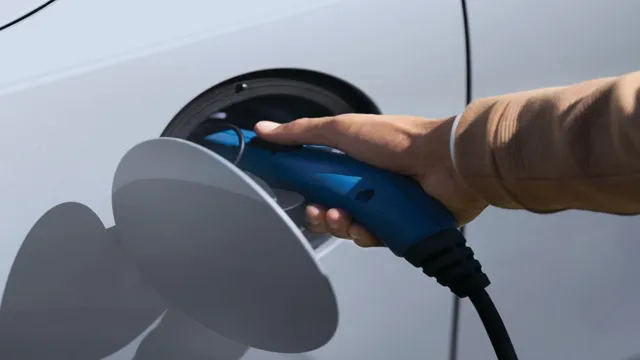
Battery Aging and Wear
As electric vehicles become more popular, battery aging and wear have become increasingly important topics for EV owners to understand. Common causes of electric car battery failure include high temperatures, frequent fast charging, and deep discharges. Just like any other battery, heat is a significant factor in battery deterioration.
Fast charging also contributes to battery aging because it raises the operating temperature of the battery. Similarly, deep discharges, or fully draining the battery, can affect its long-term health and reduce its lifespan. It’s important for EV owners to avoid exposing their batteries to these factors whenever possible to extend the life of their battery and avoid costly replacements.
Symptoms of a Bad Electric Car Battery
If you own an electric car, it’s essential to know the symptoms of a bad electric car battery. One of the most noticeable signs is a decrease in driving range. If you notice that you need to recharge more frequently, then there may be an issue with your battery.
Another indication is a change in the charging time. If your electric car battery takes more time to charge, then it’s an indication that something may be wrong with it. You may also notice that your car is slower, less powerful, or has difficulty accelerating.
These factors suggest that your electric car battery is losing power and needs to be replaced. Lastly, if you notice that your battery has begun to swell or crack, it’s a definite sign that something is wrong and that your battery needs to be addressed immediately. These symptoms should not be ignored, as they could lead to much more severe problems.
If you have any doubts, it’s best to have your battery inspected by a qualified technician.
Reduced Range on a Single Charge
If you’re experiencing reduced range on a single charge, it’s possible that your electric car battery is starting to fail. One of the most common symptoms of a bad electric car battery is decreased performance, which can manifest itself in a number of ways. Your car may require more frequent charges, take longer to charge, or may not hold a charge as well as it used to.
You might also notice your car struggling to maintain its speed, even on flat terrain. It’s important to keep an eye out for these kinds of symptoms, as they may indicate that it’s time to have your battery checked by a professional. Don’t risk getting stranded on the side of the road – proper care and maintenance of your electric car battery is key to getting the most out of your vehicle.
Increased Charging Time
Are you experiencing increased charging time for your electric car? This could be a symptom of a bad battery. A healthy electric car battery should charge fully within a few hours, but if it takes longer than usual, it could indicate a problem. The cause of this problem could be due to various factors such as high temperature, frequent fast charging, or simply age-related wear and tear.
If you notice an increase in charging time, it is important to have your battery checked by a professional to diagnose and resolve any issues. Don’t let a bad battery make your driving experience a hassle. Get it checked today!
Unusual Noises or Vibrations
Electric car batteries are usually reliable and durable, but like any other component, they can go bad over time. One of the telltale signs of a bad electric car battery is unusual noises or vibrations. If you notice any humming, buzzing, or rattling sounds coming from your electric car, it could be a sign that your battery is failing.
Additionally, if you feel any vibrations or shaking while driving, your battery may be experiencing a short circuit or other malfunction. It is imperative to get your electric car battery checked by a certified technician at the first signs of trouble. Ignoring these symptoms could lead to complete battery failure and expensive repairs down the line.
Remember, your electric car’s battery is the heart of the vehicle, and it’s crucial to keep it in good working order for optimal performance.
Solutions for Bad Electric Car Batteries
Electric car batteries can sometimes go bad, which can cause problems for those who rely on them for transportation. Fortunately, there are several solutions for addressing bad electric car batteries. One option is to have the battery reconditioned, which involves breaking down the chemistry inside the battery and replacing the damaged parts.
Another solution is to replace the battery entirely, which can be expensive but may be necessary if the battery is too damaged to repair. Additionally, some electric car manufacturers offer programs to recycle old batteries and provide new ones at a discounted price. Regardless of the specific solution, it is important to address the issue as soon as possible to ensure the safety and reliability of the electric vehicle.
Proper Maintenance and Care
Proper maintenance and care are vital for electric car batteries to function effectively and last longer. However, even with the best maintenance practices, there comes a time when the battery starts to degrade. But don’t worry because solutions are available for bad electric car batteries, starting with maximizing the use of regenerative braking.
You can also reduce the load on the battery by avoiding high speeds, hot temperatures and keeping the air conditioning to a minimum. Another option is to recharge the battery more frequently to keep it well-maintained. If the battery is completely degraded and needs replacement, there are options available, including refurbishing the battery or purchasing a new one.
Overall, taking good care of your electric car battery is essential to enjoy the benefits of electric vehicles while avoiding hefty replacement costs.
Battery Replacement or Repair
Electric Car Battery Replacement One of the biggest concerns for electric car owners is the lifespan of their battery. Over time, electric car batteries can hold less charge and take longer to charge. Luckily, there are solutions to this issue.
One option is to replace the battery altogether. However, this can be quite expensive, and not all electric car owners have the funds for this. Another option is to repair the battery.
There are companies out there that specialize in battery repair and offer services to restore any damaged cells. This can be a cost-effective solution for those looking to extend the life of their electric car battery. It’s important to note that regular maintenance and charging habits can also play a significant role in prolonging the life of an electric car battery.
Overall, electric car owners should do their research and explore all options before deciding on a solution for their bad battery.
The Future of Electric Car Batteries
Electric car batteries have come a long way since their inception, but there’s no denying that they have a bad reputation. Many people steer clear of electric cars due to battery concerns, such as range anxiety, slow charging times, and high replacement costs. However, the future of electric car batteries is looking promising.
With advancements in technology and research, we can expect to see improvements in battery lifespan, faster charging times, and increased energy density. In fact, some companies are even experimenting with solid-state batteries, which could provide even more significant advancements in performance and safety. As the demand for electric cars continues to grow, we can expect to see even more innovation and advancements in battery technology, making them a more enticing option for consumers and helping to reduce our dependence on fossil fuels.
Conclusion
In conclusion, a bad electric car battery is like a flat tire on a bicycle – it slows you down and hinders your progress. But just like how a cyclist can change their flat tire and continue their journey, electric car owners can replace their faulty battery and keep cruising towards a greener future. So don’t let a bad battery get you down – swap it out and keep on rolling!”
FAQs
What are some common signs that indicate a bad electric car battery?
Common signs that indicate a bad electric car battery include reduced driving range, difficulty starting the vehicle, and frequent need for charging.
How long does an electric car battery typically last before needing to be replaced?
The lifespan of an electric car battery can vary, but on average it may last anywhere from 8 to 10 years before needing to be replaced.
Can a bad electric car battery be repaired, or does it need to be replaced?
In some cases, a bad electric car battery may be able to be repaired, but more often it will need to be replaced.
How much does it cost to replace an electric car battery?
The cost of replacing an electric car battery can vary depending on the make and model of the vehicle, but on average it may cost anywhere from $3,000 to $7,000.

